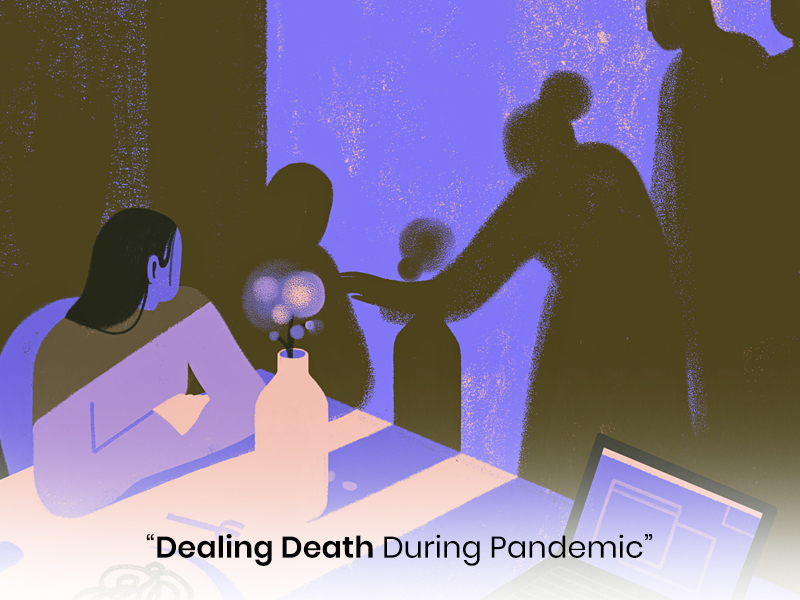

The great Epic Mahabharata has a poignant philosophical dialogue between Yaksha and Yudhishthira. Yaksha asks, what is the most astonishing thing on earth and Yudhishthira answers thus: “Although everyday mortal humans come across countless creatures dying, yet they go about as if they are going to live forever”. No time is more significant for this reflection than now when the world is reeling under ever-increasing mortality graph of the pandemic. Death is no longer a topic we can conveniently choose to ignore. The need of the hour, therefore, is to look at it in the eye and deal with it. This is not the first time though, that such a situation played havoc on earth, history has been witnessing similar catastrophes before. One can easily draw a parallel between the plague pandemic and the current one we are facing. While our current pandemic, COVID-19, is very different from the infamous fourteenth-century plague, it is possible that learning the Black Death can show us something about how to handle our current situation. Due to its chronological and geographical range as well as its mortality rates, the Black Death is recognized as the largest pandemic in human history. Most individuals will have heard a reference to the Black Death in a history class, film, video game, or television show. The very words “the Black Death” might seem to correctly communicate the fear and grief that many are feeling now. At the end of the day, there are six important ideas we can take to keep our sanity intact: don’t panic, be patient, don’t seek scapegoats, recognize and address inequities, remember to have hope and help each other, and value interdisciplinarity.
It's not easy to calmly make plans about death, especially if it involves the death of a beloved companion. Memories are the strings that attach us with the departed long after they are gone. Funeral rites are a way of making peace with grief. But Covid death denies even that closure. This regret often looms larger than the loss. In Kolkata there is an alley dedicated to coffin makers, locally known as Kafan Gali; from coffins to pall, from burial services to hearse they take care of the last journey. In COVID-times some of them are even providing body bags.
Doctors, janitors, bankers, health workers, police are the front-liners of the Covid battle and are one of the most affected casualties of this war-like situation. They have to bear the burden of witnessing death and devastation from close quarters constantly. It is therefore extremely important to help them do their work with more ease and with as less additional stress as possible. We need to be careful and empathetic to them at this trying time.
Death is so final when life is so full of possibilities, how then can one deal with it? The most commonly taught system for understanding the process of dying was introduced by Dr. Elizabeth Kubler-Ross in her 1969 book, On Death and Dying. Her model that describes the Five Stages of Mind: Denial, Anger, Bargaining, Depression, and Acceptance, helps counsellors, psychologists, psychiatrists provide empathy and understanding to patients & families.
Coming to terms with the inevitable is the only way to move on and embrace life. The journey is often easier for believers. Praying, meditation, practicing mindfulness are some strategies to adopt to come closer to acceptance.
Finally reading, listening to, watching videos of first-hand experience of people who have beaten the spectre of death and has come out victorious can be powerfully motivational. There are certain customs like Santhara of the Jains, in which an individual takes a vow to wait for Death by gradually renouncing all worldly desires, needs and attachments. But that’s a path chosen by few. 2020 and 21 has taught us to hold firmly on to the belief that as a species, we humans have adapted to various changes and survived, so, this too shall pass. We shall overcome the fear of death, the fear of uncertainty because every night is followed by dawn. Let us move towards light: Tamaso Ma Jyotirgamaya Mrityorma Amrita Gamay.
Written by:
Prof. Avirupa Bhaduri
Faculty, Media & Communication
ISB&M, Kolkata